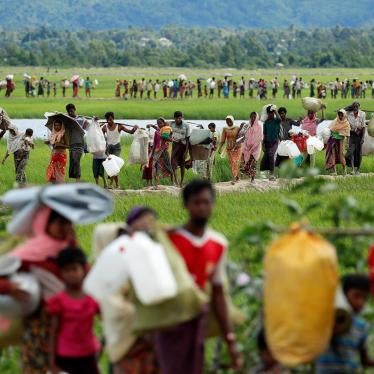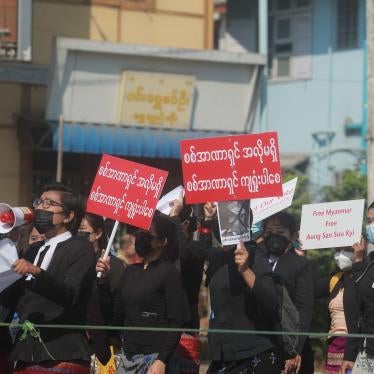(New York) – The first official visit to Burma by Thailand’s new prime minister should focus on mutual human rights concerns as well as investment opportunities, Human Rights Watch said today. Prime Minister Yingluck Shinawatra will pay a short visit to the Burmese capital Naypyidaw for several hours on October 5, 2011, meeting with Burmese President Thein Sein, but has no plans to see the democracy leader, Aung San Suu Kyi, or ethnic political party leaders.
Yingluck’s visit is expected to include discussion of several longstanding bilateral issues. These include Thai investments such as the Tavoy (Dawei) port project, the future of more than 140,000 refugees from Burma in camps in Thailand, the legal status in Thailand of an estimated two million Burmese migrant workers, and bilateral border trade. The discussion is also likely to include security issues such as large-scale drug trafficking from Burma. Thailand has stated that Yingluck’s visit is designed to encourage Burma’s democratic transition and reform, which should be linked to any decision to award Burma the chairmanship of the Association of Southeast Asian Nations (ASEAN) in 2014, Human Rights Watch said.
“Prime Minister Yingluck should make clear to Burmese leaders that she’s as concerned about human rights as she is about Thai investment,” said Elaine Pearson, deputy Asia director at Human Rights Watch. “That means telling them that Thailand will only endorse Burma’s bid for the ASEAN chair if all political prisoners are released and there’s a solid timetable for genuine human rights reforms.”
In May, at ASEAN’s senior officials meeting, Burma proposed to chair the regional grouping in 2014 by switching with Laos. The decision is likely to be made at the upcoming ASEAN regional summit in November in Bali.
Human Rights Watch called on the Thai government to ensure the safety of refugees in its border-based camps, and to ensure that refugees are not forcibly returned to Burma in violation of international law. Fighting in ethnic minority areas has escalated since the November 2010 elections in Burma, resulting in thousands of new displaced persons and refugees. While Burmese authorities have reportedly welcomed back many long-exiled dissidents, the Thai authorities should ensure that any returns are genuinely voluntary and that they are conducted in safety and dignity, with extensive monitoring by the United Nations High Commissioner for Refugees (UNHCR).
“Burma’s overtures of reform are no excuse for Thailand to prematurely return Burmese refugees,” Pearson said. “With the sincerity of Burma’s reforms in doubt and fighting raging in the border areas, this is no time to push people back into danger.”







